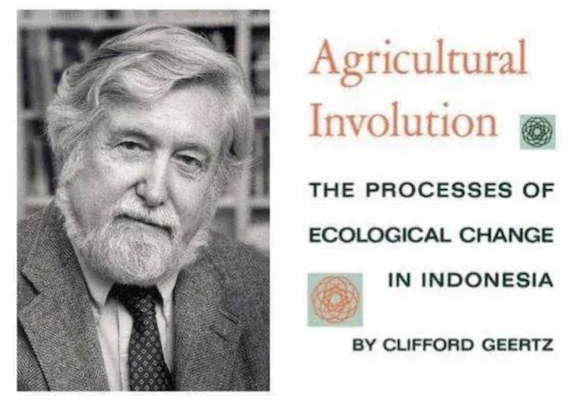5 thoughts on career and life after two years of covid
Do you like my post? Treat me a coffee?
I don’t know if you have this feeling. Since covid, my perception of time has changed, not from 2021 to 2022, but from Delta to Omicron. Like many people, COVID has made me reconsider my career and life. Here are five things I think about the most often.
1) Involution
You might ask, what is involution? Anthropologists initially used the word to describe self-perpetuating processes that keep agrarian societies from progressing, involution has become a shorthand used by Chinese in big cities to describe the ills of their modern lives: Parents feel intense pressure to provide their children with the very best;Children study 24x7 to get ahead in the educational rat race; people work endless hours trying to be better than their neighbors, and unfortunately, there are many neighbors.

I learned this word last year and immediately resonated with it. I moved to silicon valley in 2018 from Midwest. I felt the rat race…and everything else is more intense too. 5 mins commute time became 1 hour, and I had to watch the time for the Caltrain. If you drive, traffic can be like hell, and parking is impossible when you finally get there. And the housing market? Don’t get me started.
At the same time, data science, the industry I am in, is becoming much more competitive. It was relatively easy to get into when I became a data scientist nine years ago. Now, data science is developing towards engineering, and the job requirement includes technologies in software engineering, big data, and cloud computing. We are moving to a place where doing machine learning or analytics means also being able to deploy models or build the data pipeline for the dashboard. It is a lengthy process with lots of pitfalls and requires different skills. It is a tremendous and exciting field for some. There are exciting engineering challenges when it comes to automation at scale. I love analyzing data, building models, and delivering insights. But I am not sure if I enjoy the deploying part.
2) Retire early
It may surprise many of my friends as I am probably the last one they would imagine wanting to retire. But to be honest, after two years at an early startup while adjusting to the bay area life, I thought a lot about how to retire early, and I wanted to reject the rat race and rest-and-vest. Then the pandemic hit, which made me reconsider my career and life. I realized thinking about retiring in your early 30s is not a good signal, and I knew I needed a change.

3) Career path
So I changed my career path from data science to quantitative research. The two have a lot of overlap in the technical skills, but quant research is less about deploying something in the production and more about coming up with the prototype. We can have another video on the different data science tracks and relevant fields. My current work involves statistical modeling, market research, and psychology. I still need to spend a significant amount of time pulling, cleaning, and transforming data. But much less than before, and I don’t deploy pipeline. A career is not necessarily vertical. It can also be horizontal. I am not encouraging you to be a “jack of all trades.” But it is possible to be an expert in one area and develop essential skills in several other disciplines.
4) Unpredictability
Due to covid, many individuals, companies, and societies need to make changes quickly to adapt to a new normal that was unthinkable before. When the epidemic started in 2020, all companies had a hiring freeze making job seekers nervous. Everyone thought that the stock market would crash and a recession would follow. We all know what happened later. As of mid-2021, the U.S. government had spent $13 trillion: $5.2 for COVID + $4.5 for quantitative easing + $3 for infrastructure. As a reference, World War II costs less than $5 trillion in today’s dollars. As a result, U.S. stocks rose sharply. In 2021, a record of Americans quit their job, including me. Some people call it the “big quit,” others the “great resignation.” Even higher unpredictability will be the norm. From now on, the ability to adapt to changes is not just important. It is indispensable. This ability is needed in work and life.
5) Infinite games
Many people have heard of the concept of finite and infinite games. If you want to learn more about this, there is an excellent book, “Finite and Infinite Games” by James Carse. The purpose of a finite game is to win. There are boundaries and winners and losers. For example, if your goal is to buy a 2 million house. Once you achieve that goal, the game ends, and you win. The thinking of finite games makes you fall into the trap of rat race. An infinite game is for continuation, seeing life as a process. This way of thinking allows you to cope with change better. For example, if your job is replaced by artificial intelligence one day, if you look at it with finite game thinking, you may feel that your life is a failure, or you may lose your hope. But if you look at this with an infinite game mindset, you might see this as a phase in your life and start thinking about learning new skills to start the next phase. In these unpredictable times, the thinking of infinite games can help improve anti-fragility and better respond to change.

This work is licensed under a Creative Commons Attribution-NonCommercial-ShareAlike 3.0 Unported License.